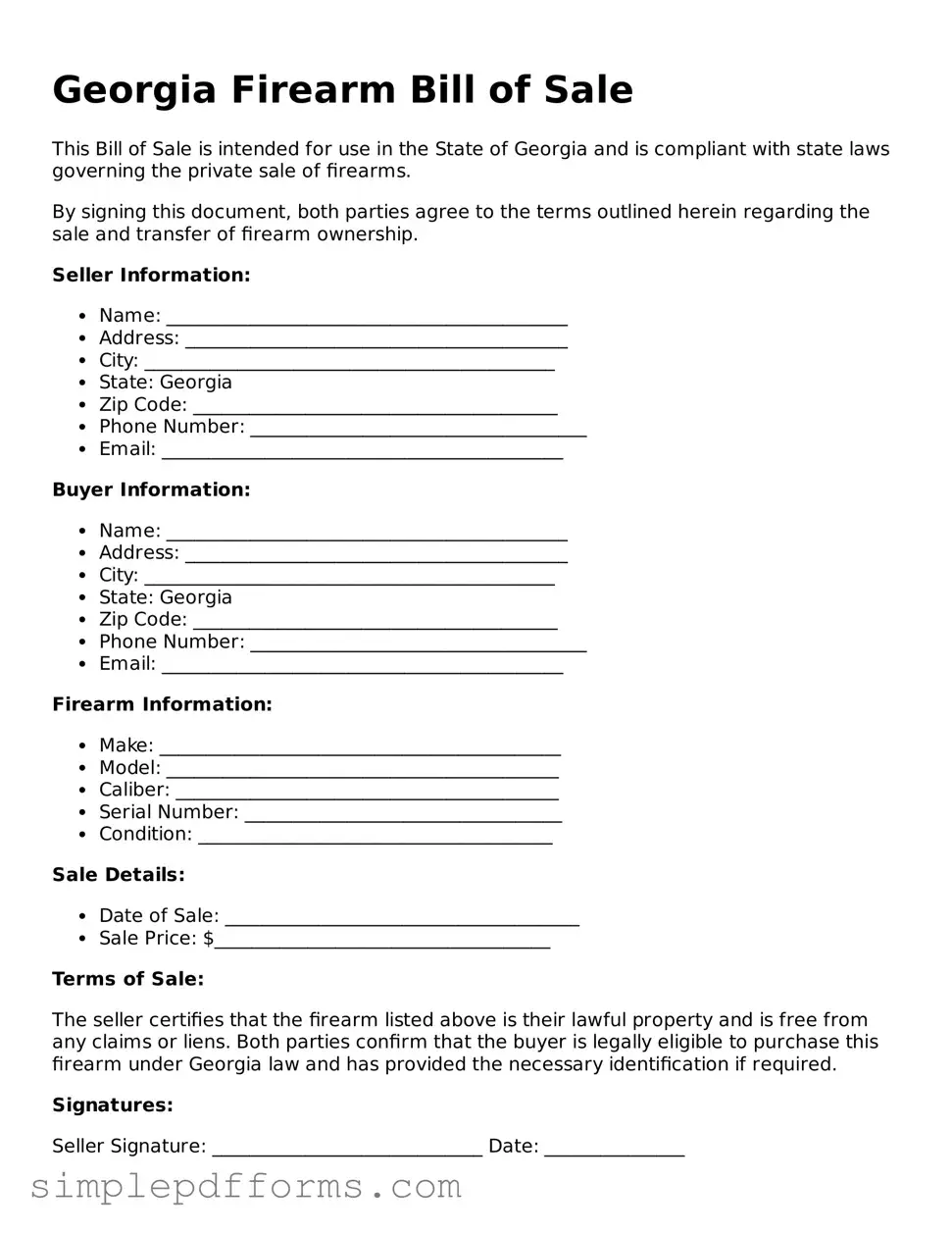Attorney-Verified Firearm Bill of Sale Document for Georgia State
The Georgia Firearm Bill of Sale form is a legal document that records the transfer of ownership of a firearm between a seller and a buyer. This form serves as proof of the transaction and outlines important details such as the make, model, and serial number of the firearm. Understanding how to properly complete this form is essential for both parties to ensure compliance with state laws and protect their rights.
Open Firearm Bill of Sale Editor Now

Attorney-Verified Firearm Bill of Sale Document for Georgia State
Open Firearm Bill of Sale Editor Now

Open Firearm Bill of Sale Editor Now
or
Get Firearm Bill of Sale PDF Form
Your form is waiting for completion
Complete Firearm Bill of Sale online in minutes with ease.